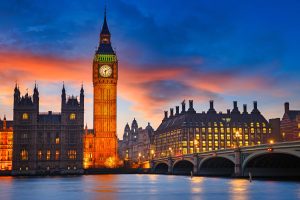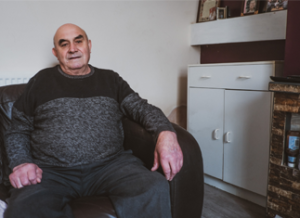Peter Smith, Director of Policy and Advocacy 28/10/21
Ever since Ofgem announced the biggest ever increase to the Energy Price Cap in August, the cost of energy has been a growing political headache for the UK Government and the Devolved Nations. Much more importantly than political anxiety, millions of people across the UK are currently filled with dread at what this winter heralds. A new YouGov poll out yesterday illustrated how acute this worry is for the poorest; with one in four of Britain’s lowest-income households saying they can’t afford even a £5 increase to their monthly energy costs. Sadly, a £5 increase will be dwarfed by the likely prospect of further surges in energy bills, with increases possibly as much as £400-£600 per year, when Ofgem reviews the current cap this February. It is very clear – at least to most people – ‘something must be done’.
Regrettably the Chancellor chose not to provide any additional support to help with the soaring costs of energy
Within National Energy Action’s Budget submission, we highlighted several options for supporting low income and vulnerable consumers through this winter. Following the financial impact of the pandemic, however, the Chancellor is now basing his reputation on fiscal constraint. We therefore knew it was going to be a challenge to secure new funds and, as most will have already seen, regrettably the Chancellor chose not to provide any additional support to help with the soaring costs of energy. Instead, he decided to underline his political beliefs, using the example of ‘every time prices rise’ as an illustration of where the state should limit its involvement. There was also only one mitigation for the £6 billion reduction in welfare support, the Universal Credit taper will be reduced helping around 2 million working households.
Let’s be clear, these are political calculations, not decisions based on rational thought or even economics. As we highlighted repeatedly in the build up to the Budget, the millions raised from increasing VAT on soaring energy bills, added to the billions of additional revenue from higher carbon prices could have easily offset any costs of helping an additional 2.4 million households across the UK who are badly struggling with the soaring cost of energy. Unlike the Household Support Fund, this support would have directly provided automatic relief to help with energy bills this winter. There was however no additional support for the 4 million recipients of Universal Credit out of work, the 1.5 million fuel poor households that contain someone with a long-term illness or disability that reduces their ability to work or carry out day-to-day activities, or the 50% of all fuel poor households that do not receive means tested benefits.
Over 4.5 million households will now struggle through winter
Sadly, the Spending Review wasn’t much better. The energy crisis has shone a light on the deficiencies of our building stock. We are currently exposing millions of the poorest households to significant fluctuations in the wholesale gas price, simply because of the inefficiency of their homes. As most people know, this is entirely avoidable. The much awaited Heat and Buildings Strategy which immediately preceded the Budget was a critical moment to start to address years of under investment. Disappointingly, it also failed the test. We are now £1.4bn short of the Conservative manifesto pledge to help the poorest households living in the least efficient homes.
Political decisions of this magnitude have consequences. Over 4.5 million households across the UK will now try to struggle through this winter. Some will sink further into debt. As well as reducing spending in local economies, this bad debt will put further pressure on suppliers. In turn, this increases the risk they will fail and we will all pick up the increasing costs though our bills. Others will be forced to turn off the heating, leaving them at acute risk of serious ill-health or even premature death. This too has a cost. Not only to these individuals but again, to all of us as cold related morbidity puts acute financial pressures and unwelcome strain on our stretched health and social care staff, requiring ongoing top ups to health budgets, again, paid for in this case by new taxes.
In response, organisations like the Institute for Fiscal Studies (IFS) have highlighted that real incomes are barely likely to grow and high inflation, rising taxes and poor growth will keep living standards virtually stagnant for another half a decade. Our own response was also robust and necessary. The Chancellor doesn’t know what it’s like to choose between heating and eating but due to his Budget over a million more households soon will. We will all end up paying the price for leaving the poorest out in the cold.
Subscribe to Updates


























